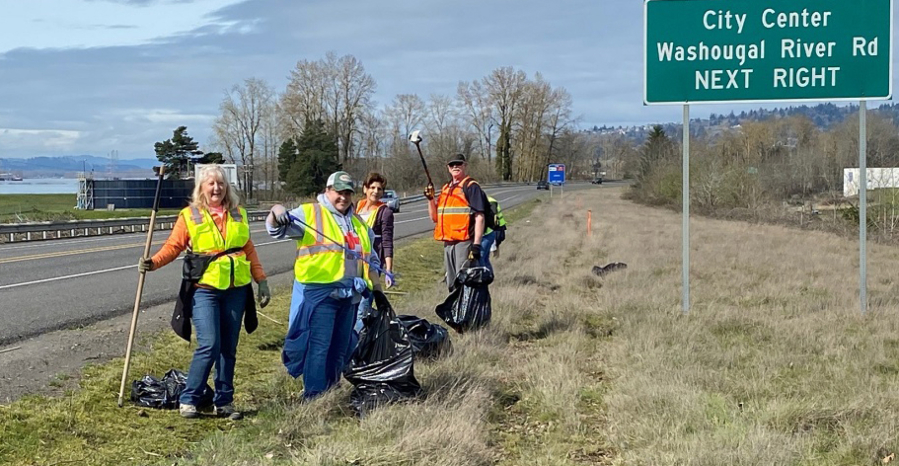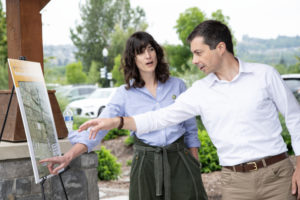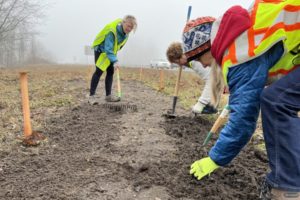Washougal resident Melanie Wilson has lived in many different places across the United States and believes the Pacific Northwest is, “hands-down,” the most gorgeous place in the country.
However, since moving to Washougal three years ago, Wilson has become increasingly frustrated over what she sees as an unacceptable amount of garbage piling up on the sides of local roads, marring the area’s natural beauty.
“The trash issue had been bothering me personally for quite some time, up to the point where I could hardly go down the road as a passenger without wanting to put my hands over my eyes. It was just so depressing, really,” Wilson said. “Then my husband and I drove down the length of most of California back in February. I know that Interstate 5 in California hasn’t always looked good and doesn’t always look good, but it was pristine when we were driving up and down it. I thought, ‘It’s possible for a state to prioritize clean highways.’ As we drove back and got into Oregon and then into Washington, the roadsides just got trashier and trashier, and more depressing as we went along.”
Now, Wilson, the founder of the East County Citizens Alliance’s (ECCA), is turning her frustration into action.
Wilson, along with other members of the ECCA, launched the “Great Route 14 Trash Cleanup” in March. Since then, they’ve managed to collect and dispose of over 2,000 pounds of trash along Highway 14 in the Camas-Washougal area.




